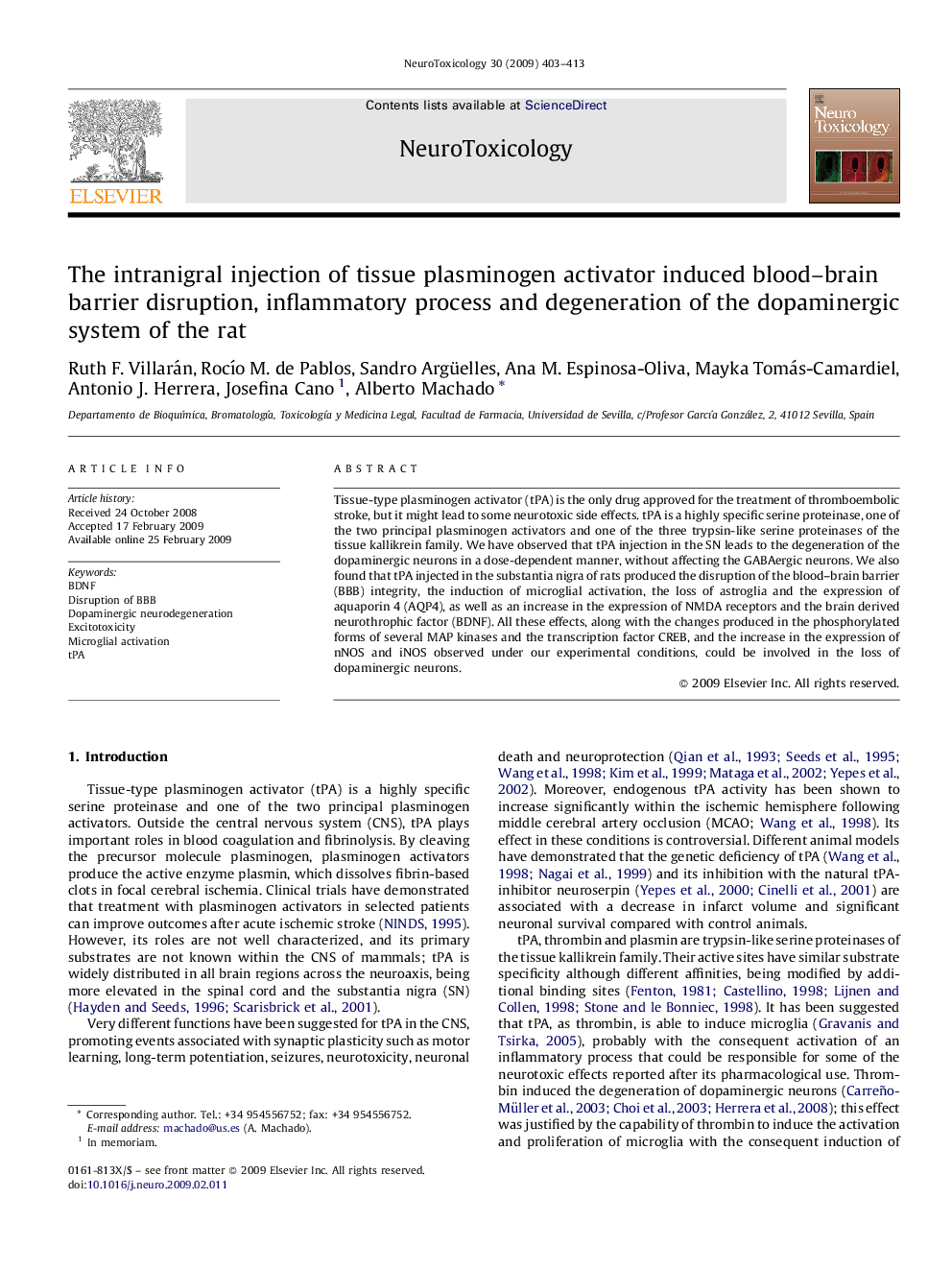| Article ID | Journal | Published Year | Pages | File Type |
|---|---|---|---|---|
| 2590694 | NeuroToxicology | 2009 | 11 Pages |
Tissue-type plasminogen activator (tPA) is the only drug approved for the treatment of thromboembolic stroke, but it might lead to some neurotoxic side effects. tPA is a highly specific serine proteinase, one of the two principal plasminogen activators and one of the three trypsin-like serine proteinases of the tissue kallikrein family. We have observed that tPA injection in the SN leads to the degeneration of the dopaminergic neurons in a dose-dependent manner, without affecting the GABAergic neurons. We also found that tPA injected in the substantia nigra of rats produced the disruption of the blood–brain barrier (BBB) integrity, the induction of microglial activation, the loss of astroglia and the expression of aquaporin 4 (AQP4), as well as an increase in the expression of NMDA receptors and the brain derived neurothrophic factor (BDNF). All these effects, along with the changes produced in the phosphorylated forms of several MAP kinases and the transcription factor CREB, and the increase in the expression of nNOS and iNOS observed under our experimental conditions, could be involved in the loss of dopaminergic neurons.
